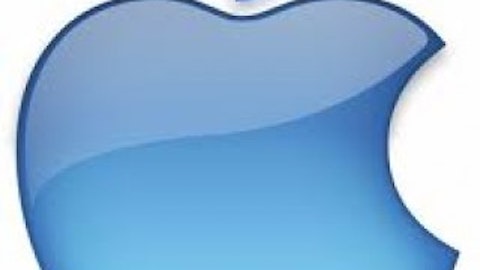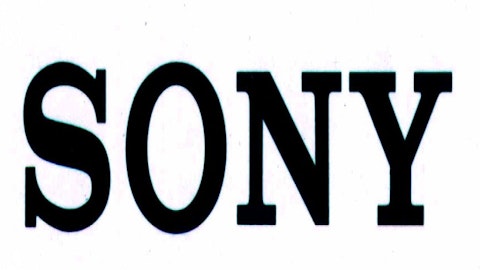
In most instances, a patent can be a barrier of entry into a marketplace, but fortunately neither company is low on financial resources and even if one company were to lose one patent case the other company could easily make up for it with a patent win of their own.
Apple wins a round
AllThingsD reports that Apple Inc. (NASDAQ:AAPL) won a patent case in Japan:
The Tokyo District Court ruled Friday that a handful of Samsung smartphones violate Apple’s “rubber-banding” patent. That patent describes, among other things, the over-scroll bounce iOS performs when it reaches the bottom of a scrollable element, and it’s proving a powerful weapon in Apple’s intellectual property arsenal. The company successfully asserted it against Samsung in its $1.05 billion U.S. lawsuit against the company last summer.
Now, neither Apple Inc. (NASDAQ:AAPL) nor Samsung actually needs the money. Both companies generate significant profits from smartphone devices. The patent battle that’s going on is just a distraction that takes away from the bigger picture of investing in these companies. The smartphone and tablet market are projected to grow at really fast rates, and in most instances a patent grants the company the ability to earn revenue from licenses. In most instances, it doesn’t mean that one company will not be able to use the other company’s patented technology idea.
For both Apple and Samsung this will be an added cost to selling the product, but both companies are likely to offset the cost of paying out royalties with the royalties they collect from each other. Smartphone devices at the higher-end have higher gross margins, and because of this both Samsung and Apple Inc. (NASDAQ:AAPL) can afford to pay royalty fees on the higher end phones.
Low-end smartphones will not borrow technologies from other patent portfolios because of the added licensing costs. So at the high-end you will find smartphone devices that are somewhat homogeneous and have similar features. But at the low-end, Samsung will never release features from an Apple iPhone on lower-margin devices due to the added cost of licensing.
Samsung wins a round
Apple Inc. (NASDAQ:AAPL) has lost a patent case, according to RT:
The US key trade regulator – the International Trade Commission (ITC) – agreed Apple violated a patent of South Korean rival Samsung. The ITC decided that usage of 3G mobile data links by Apple in its iPhone 4 and 3-G capable iPad 2 infringed Samsung patent rights.
Going forward, I find the negative effects from these patent disputes to be minimal as Apple will most likely license QUALCOMM, Inc. (NASDAQ:QCOM) 4G LTE antennae technologies (currently QUALCOMM, Inc. (NASDAQ:QCOM) is estimated to have 97% market share). QUALCOMM, Inc. (NASDAQ:QCOM) has the most advanced wireless technology patents in the world. QUALCOMM, Inc. (NASDAQ:QCOM) sells its technological wisdom to both Samsung and Apple Inc. (NASDAQ:AAPL). So in this upcoming phone generation, it is unlikely that Samsung can succeed at getting a ban under the guise of 4G as neither Apple nor Samsung owns the 4G technology that goes inside of their phones.





